Why you can trust Credit Card
More Info
On this page
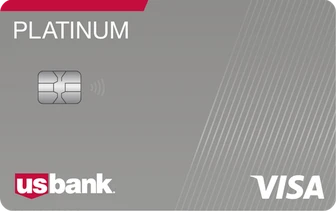
BEST FOR CUSTOMIZABLE REWARDS
U.S. Bank Cash+® Visa Signature® Card

Reward rate
5
5% cash back on your first $2,000 in eligible net purchases each quarter on the combined two categories you choose.
3
5% cash back on prepaid air, hotel and car reservations booked directly in the Rewards Travel Center.
-1
1% cash back on all other eligible purchases.
1
1% cash back on all other eligible purchases.
Intro offer
$200 bonus
Annual fee
$0
Regular APR
16.74% - 26.74% (Variable)
Recommended credit
Good to Excellent (670 - 850)
Pros
- Multiple rotating and fixed bonus categories, which can make it easier to earn rewards quickly
- The $200 sign-up bonus (after spending $1,000 within the first 120 days of account opening) increases the card’s first-year value
Cons
- The $2,000 combined spending cap each quarter for your chosen 5% categories limits your ability to rake in rewards
- Having to track and enroll in rotating categories can be a hassle for some
- New! $200 bonus after spending $1,000 in eligible purchases within the first 120 days of account opening.
- 5% cash back on your first $2,000 in combined eligible purchases each quarter on two categories you choose
- 5% cash back on prepaid air, hotel and car reservations booked directly in the Rewards Travel Center
- 2% cash back on one everyday category, like Gas Stations/EV Charging Stations, Grocery Stores or Restaurants
- 1% cash back on all other eligible purchases
- 0% Intro APR on purchases and balance transfers for the first 15 billing cycles. After that, a variable APR currently 16.74% – 26.74%
- No Annual Fee
- Pay over time by splitting eligible purchases of $100+ into equal monthly payments with U.S. Bank ExtendPay™ Plan.
- Terms and conditions apply.
ADDITIONAL FEATURES
Purchase intro APR
0% Intro APR on purchases for the first 15 billing cycles.
Balance transfer intro APR
0% Intro APR on balance transfers for the first 15 billing cycles.
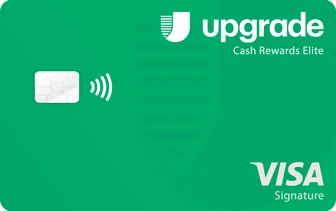
BEST FOR PERSONAL LOAN ALTERNATIVE
Upgrade Cash Rewards Elite Visa®

Reward rate
2.2
Earn 2.2% unlimited cash back on card purchases every time you make a payment
Intro offer
$200
Annual fee
$0
Regular APR
8.99% - 29.99% (Variable)
Recommended credit
Good to Excellent (670 - 850)
Pros
- You won’t need to use your reward earnings to offset any maintenance fees.
- You’ll earn a bonus after you open a Rewards Checking account and make three purchases with the card in your first 60 days.
Cons
- The high end APR range is well above average. That could prove costly if you don’t have the credit needed to qualify for the lower range and you end up carrying a balance.
- You won’t get a break on interest if you carry a balance since there are no intro APR offers on purchases or balance transfers.
- $200 bonus on your Upgrade Card after opening a Rewards Checking account and making 3 debit card transactions within 60 days.*
- New Feature: Pay your balance in full early each month and avoid interest with EarlyPay.
- Earn 2.2% unlimited cash back on card purchases every time you make a payment
- See if you qualify in seconds with no impact to your credit score
- No Fees – $0 annual fees, $0 activation fees, $0 maintenance fees
- Combine the flexibility of a card with the low cost and predictability of a loan
- Access to a virtual card, so you can start earning while you wait for your card to arrive in the mail.
- Contactless payments with Apple Pay® and Google Pay™
- Mobile app to access your account anytime, anywhere
- Enjoy peace of mind with $0 Fraud liability
- *To qualify for the $200 welcome bonus, you must open and fund a new Upgrade Rewards Checking Account and make 3 debit card transactions within 60 days of your Upgrade Card account opening. The bonus credit will be posted to your Upgrade Card as a rewards credit within 1-2 billing periods following the third debit transaction on your Rewards Checking account. Your Upgrade Card must be in good standing to receive the bonus.
ADDITIONAL FEATURES
Purchase intro APR
N/A
Balance transfer intro APR
N/A
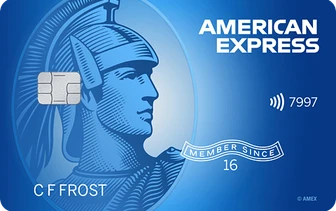
BEST FOR GAS
Blue Cash Everyday® Card from American Express

Reward rate
3
3% Cash Back at U.S. supermarkets on up to $6,000 per year in purchases, then 1%.
1
New! 3% Cash Back on U.S. online retail purchases, on up to $6,000 per year, then 1%.
-1
1% Cash Back on other purchases.
1
1% Cash Back on other purchases.
Intro offer
$200
Annual fee
$0
Regular APR
16.24%-27.24% Variable
Recommended credit
Good to Excellent (670 - 850)
Pros
- It carries one of the best combined cash back rates available at no annual fee at U.S. gas stations and U.S. supermarkets. Those two categories make up a big chunk of the average person’s budget.
- You can earn $7 back per month on The Disney Bundle streaming package, which includes Disney+, Hulu, and ESPN+ (each month you spend $13.99 or more on an eligible subscription, terms apply). To earn that much back in a month via the card’s 3 percent categories, you’d typically need to spend over $230.
Cons
- You’ll only earn 3 percent cash back on your first $6,000 in annual spending in each of the card’s bonus categories (then 1 percent). While that’s a high limit, it could hold you back if you’re sharing an account across multiple households.
- The card carries a 2.7 percent foreign transaction fee, so it’s not a good option if you’re looking for a single rewards card you can use at home and abroad.
- Earn a $200 statement credit after you spend $2,000 in purchases on your new Card within the first 6 months.
- No Annual Fee.
- Balance Transfer is back! Enjoy 0% intro APR on purchases and balance transfers for 15 months from the date of account opening. After that, 16.24% to 27.24% variable APR.
- 3% Cash Back at U.S. supermarkets on up to $6,000 per year in purchases, then 1%.
- New! 3% Cash Back on U.S. online retail purchases, on up to $6,000 per year, then 1%.
- 3% Cash Back at U.S. gas stations, on up to $6,000 per year, then 1%.
- Get $7 back each month after using your Blue Cash Everyday® Card to spend $13.99 or more each month on an eligible subscription to The Disney Bundle, which includes Disney+, Hulu, and ESPN+. Enrollment required.
- Terms Apply.
ADDITIONAL FEATURES
Purchase intro APR
0% on purchases for 15 months
Balance transfer intro APR
0% on balance transfers for 15 months
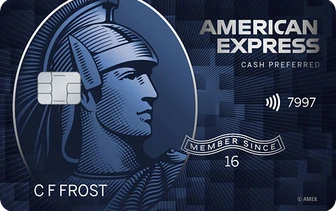
BEST FOR GROCERIES
Blue Cash Preferred® Card from American Express

Reward rate
6
6% Cash Back at U.S. supermarkets on up to $6,000 per year in purchases (then 1%).
1
6% Cash Back on select U.S. streaming subscriptions.
3
3% Cash Back at U.S. gas stations
0
3% Cash Back at U.S. gas stations
1
1% Cash Back on other purchases
Intro offer
$350
Annual fee
$95
Regular APR
16.24%-26.24% Variable
Recommended credit
Good to Excellent (670 - 850)
Pros
- The base reward program is uber-lucrative, making this card a good choice for people looking for long-term value.
- You don’t have to keep track of rotating spending categories or enrollment deadlines.
Cons
- There is no intro APR offer on balance transfers.
- You won’t earn the extra rewards for grocery shopping at major superstores and wholesale clubs, as those don’t count as U.S. supermarkets.
- Earn a $350 statement credit after you spend $3,000 in purchases on your new Card within the first 6 months.
- Buy Now, Pay Later: Enjoy $0 intro plan fees when you use Plan It® to split up large purchases into monthly installments. Pay $0 plan fees on plans created during the first 12 months after account opening. Plans created after that will have a fixed monthly plan fee up to 1.33% of each purchase amount moved into a plan based on the plan duration, the APR that would otherwise apply to the purchase, and other factors.
- Low intro APR: 0% intro APR for 12 months on purchases from the date of account opening, then a variable rate, 16.24% to 26.24%.
- 6% Cash Back at U.S. supermarkets on up to $6,000 per year in purchases (then 1%).
- 6% Cash Back on select U.S. streaming subscriptions.
- 3% Cash Back at U.S. gas stations and on transit (including taxis/rideshare, parking, tolls, trains, buses and more).
- 1% Cash Back on other purchases.
- Cash Back is received in the form of Reward Dollars that can be redeemed as a statement credit.
- $95 Annual Fee.
- Terms Apply.
ADDITIONAL FEATURES
Purchase intro APR
0% on purchases for 12 months
Balance transfer intro APR
N/A
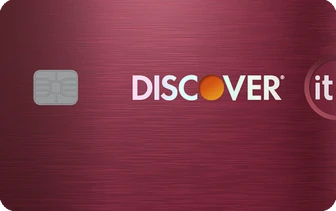
BEST FOR ROTATING CASH BACK CATEGORIES
Discover it® Cash Back

Reward rate
5
Earn 5% cash back on everyday purchases at different places each quarter like Amazon.com, grocery stores, restaurants, gas stations and when you pay using PayPal, up to the quarterly maximum when you activate.
1
Plus, earn unlimited 1% cash back on all other purchases – automatically.
Intro offer
Cashback Match™
Annual fee
$0
Regular APR
13.49% - 24.49% Variable
Recommended credit
Good to Excellent (670 - 850)
Pros
- Discover will match the cash back you earn at the end of the first year.
- There are a few cash back redemption options, including credit to your account and donations.
Cons
- You must enroll to take advantage of the bonus categories each quarter.
- There is a spending limit on your highest cash back category each quarter ($1,500 in combined purchases per quarter).
- Intro Offer: Unlimited Cashback Match – only from Discover. Discover will automatically match all the cash back you’ve earned at the end of your first year! There’s no minimum spending or maximum rewards. You could turn $150 cash back into $300.
- Earn 5% cash back on everyday purchases at different places each quarter like Amazon.com, grocery stores, restaurants, gas stations and when you pay using PayPal, up to the quarterly maximum when you activate. Plus, earn unlimited 1% cash back on all other purchases – automatically.
- New! Discover helps remove your personal information from select people-search websites. Activate by mobile app for free.
- Every $1 you earn in cash back is $1 you can redeem.
- New Intro APR: Get a 0% intro APR for 15 months on purchases. Then 13.49% to 24.49% Standard Variable Purchase APR applies, based on credit worthiness.
- No annual fee.
ADDITIONAL FEATURES
Purchase intro APR
0% for 15 months
Balance transfer intro APR
0% for 15 months
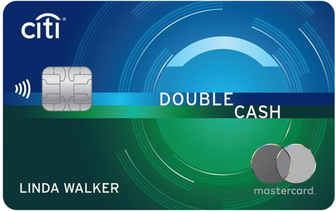
BEST FOR UP TO 2% CASH BACK
Citi® Double Cash Card

Reward rate
2
Earn 2% on every purchase with unlimited 1% cash back when you buy, plus an additional 1% as you pay for those purchases.
Intro offer
$200 Cash Back
Annual fee
$0
Regular APR
16.24% - 26.24% (Variable)
Recommended credit
Good to Excellent (670 - 850)
Pros
- You can convert your cash back earnings to Citi ThankYou points when paired with a card like the Citi Premier® Card, which can be redeemed for travel, gift cards and more.
- There are no spending category restrictions or rotating categories
Cons
- Your rewards can expire with this card if you don’t use it for a year.
- The sign-up bonus spending requirement is higher than you’ll find on many no-annual-fee cash back cards.
- Earn 2% on every purchase with unlimited 1% cash back when you buy, plus an additional 1% as you pay for those purchases.
- For a limited time, earn $200 cash back after spending $1,500 on purchases in the first 6 months of account opening.
- Balance Transfer Only Offer: 0% intro APR on Balance Transfers for 18 months. After that, the variable APR will be 16.24% – 26.24%, based on your creditworthiness.
- Balance Transfers do not earn cash back. Intro APR does not apply to purchases.
- If you transfer a balance, interest will be charged on your purchases unless you pay your entire balance (including balance transfers) by the due date each month.
- There is an intro balance transfer fee of 3% of each transfer (minimum $5) completed within the first 4 months of account opening. After that, your fee will be 5% of each transfer (minimum $5).
ADDITIONAL FEATURES
Purchase intro APR
N/A
Balance transfer intro APR
0% intro for 18 months on Balance Transfers
A closer look at our top business credit cards
Ink Business Cash Credit Card: Best for office supplies
- What we love about the Ink Business Cash Credit Card: The bonus categories, which include office supply stores, cable, internet and phone services, are uniquely valuable to many types of businesses.
- Who this card is good for: Small-business owners, e-retailers and Etsy store owners who spend a lot on internet, phone and office supplies.
- Alternatives: If most of your monthly business expenses go beyond routine office supplies, you may find that a flat-rate card like the Ink Business Unlimited® Credit Card offers more value.
American Express Blue Business Cash Card: Best for startups
- What we love about the Blue Business Cash Card: This card offers Expanded Buying Power, a potential game-changer for a new businesses. This benefit gives you the option of exceeding your credit limit without paying an over-limit fee (see terms).
- Who this card is good for: The American Express Blue Business Cash Card is a great match for new businesses, freelancers and vendors looking for a flat-rate cash back option.
- Alternatives: Small businesses who prefer the value of points over the convenience of cash back may prefer the Blue Business Plus Credit Card from American Express. It’s also worth noting that Amex Membership Rewards points can be transferred to partnering hotels and airlines, often boosting points value.
The Business Platinum Card from American Express: Best for luxury travel
- What we love about the Business Platinum Card from American Express: Business travelers get access to over 1,400 lounges worldwide with this card. In addition, cardholders can receive up to $200 a year in airline fee statement credits with a select airline and a fee credit for Global Entry or TSA Precheck along with other notable perks.
- Who this card is good for: Big spenders who travel often and want to cash in on the most premium travel benefits.
- Alternatives: If your business doesn’t require much traveling, the American Express Business Gold Card may be a better match. Not only will you spend a lot less on annual fees, but you stand to earn a higher rewards rate on your top expense categories.
Capital One Spark Miles for Business: Best for business travel rewards
- What we love about the Capital One Spark Miles for Business: While some travel credit cards have complicated rewards structures, the Capital One Spark Miles for Business keeps it simple. You can book travel through Capital One or use your miles to cover travel-related purchases made on your card within the last 90 days, including airfare, hotel bookings, transit and more.
- Who this card is good for: Budget-conscious business travelers. If you’re looking for even more rewards, free employee cards make it easy to rack up miles on every purchase.
- Alternatives: The Ink Business Preferred Credit Card charges the same annual fee but comes with a broader range of travel benefits, including trip protection.
Divvy Business Card: Best for expense management tools
- What we love about the Divvy Business Card: This card simplifies expense budgeting by allowing you to set spending limits for employee cards. In addition to expense management and budgeting tools, cardholders can easily request credit limit increases through the platform.
- Who this card is good for: Business owners looking for a seamless way to manage staff spending. Using the Divvy platform, you can track transactions, create budgets, submit expense reports and reimburse employees.
- Alternatives: If your business regularly racks up high monthly rideshare expenses, the Brex 30 card offers 8X points on rideshares and also comes with no annual fee.
What are small-business credit cards?
Creditcard's Insight
You don’t need to own a formal business structure, like a corporation or LLC, to get a business credit card. You also don’t need an employer identification number (EIN); you can apply as a sole proprietor using a Social Security number. In fact, as long as you sell a good or service, you’re usually considered an eligible small-business owner.
How do business credit cards work?
In practice, business credit cards work the same as consumer credit cards: You get approved for a specific credit limit, which serves as your spending maximum. Your available credit decreases as you make purchases, and it increases as you pay off those purchases. Some business credit cards also require a personal guarantee from the business owner, meaning the owner promises to pay the credit card balance if the business itself cannot repay its debts.
Depending on which type of card you choose, business credit cards often come with additional perks and upgrades. These can include business credit card rewards, which are often customized to fit the categories where businesses spend most, like office supplies, dining and travel. The rewards typically come in the form of cash back or travel miles.
Business credit cards vs. personal credit cards
While it may seem easier or better to use your personal credit card for your business — especially when you’re first starting out — there are many reasons why you should be using a dedicated credit card for your small business instead of a personal card. Using a personal credit card for your small business can create several issues for you and your business down the line, while using a business credit card keeps your business finances streamlined.
For example, keeping track of your business expenses becomes much easier when you use a dedicated small-business credit card because you can track exactly what you purchased for your business. On the other hand, if you use your personal credit card for your business purchases, it’s difficult to keep track of which purchases were business related and which were not. This aspect can make taxes and dealing with the IRS much more difficult.
Personal credit cards also offer much fewer protections for your business. In the instance of a limited liability corporation — or an LLC — the lawsuit protection benefits your business enjoys with this type of business structure are only upheld if you keep your business purchases and your personal purchases completely separate. You also forgo the opportunity to build your business credit when you use your personal credit card to make business purchases. You give up all the perks and rewards — like rewards for employees’ travel purchases or purchases of office supplies — when you use your personal card in your business as well.
Types of small-business credit cards
Why small-business owners should get a business credit card
Business credit cards are designed for small-business owners. While that might bring to mind an image of someone operating a physical storefront, small-business owners take many shapes. Freelancers, contract workers, online merchants and all kinds of gig workers can qualify for business credit cards.
Business credit cards are useful for small-business owners who want to:
- Operate a sole proprietorship: Business credit cards are for all types of businesses. So even freelancers, independent contractors and gig-economy workers with limited startup or working capital can take advantage of a business credit card to cover inventory, cyclical expenses and emergencies.
- Earn some extra cash: Even if you’re just using the card for occasional purchases — a client lunch here, supplies there — cash back will rack up over time. If you maximize your rewards, you could get even more cash back or points from a business credit card.
- Use points or miles to cover business travel: Whether you’re a current or aspiring business traveler, a travel rewards business card can put you one step closer to a free flight or hotel stay with every eligible purchase.
- Separate business expenses from personal expenses: One of the most basic reasons to have a card dedicated solely to business is to track and manage your company’s expenses. Not only does this help with budgeting, but it makes doing your business’s taxes much easier.
- Finance a large purchase: If you’re dreaming of taking your business to the next level but don’t quite have the funds to comfortably cut a check, a business credit card can help. Not only can you split up the payments over several months, but you can also avoid interest entirely by making use of a 0 percent introductory APR period.
- Take advantage of unique perks: Business cards often come with benefits designed to appeal to small-business owners. Common perks include free employee cards, expense tracking tools, quarterly summaries, merchant discounts, purchase protection and travel benefits.
- Track and earn rewards for employee spending: The best business credit cards let you add employees as authorized users to the account for free. Adding employee cards allows you to track or even manage employee spending. In some cases, you can pre-set spending limits.
Pros and cons of small-business credit cards
- Pros
- Lenient qualification: It can be easier to qualify for a business credit card than a line of credit or a bank loan.
- Credit limits: Business credit cards usually provide higher credit limits than consumer credit cards.
- Funds access: A business credit card can help address cash flow concerns.
- Tax season simplification: Keeping business expenses separate from personal expenses makes tax records simpler to unravel.
- cons
- Liability: You may be personally liable for any unpaid debt on the cards, and business credit can affect your personal credit.
- Fewer protections: Business credit cards are not required to offer the same consumer protections as personal cards under the Credit CARD Act of 2009, though many issuers do voluntarily extend these protections to their business products.
- Higher interest: They can be expensive, with relatively high average interest rates and fees. These costs can eat away at your business’s bottom line if you’re not careful.
How to choose the best small-business credit card
- What categories does your business spend the most on each month? If your expenses are concentrated in one category like travel, then search for the best business credit card that offers rewards for those kinds of purchases.
- Can you afford an annual fee? Some of the best credit cards for businesses come with an annual fee in exchange for better rewards and perks. If you can recoup the cost of the annual fee or afford it outright, then you can unlock more benefits with your business spending.
- Will you carry a balance on your business credit card? Compare the APRs on the credit cards you’re considering. If you carry a balance from one month to another, expect to pay interest — so finding a card with the lowest APR possible will help mitigate costly charges on your account.
- Do you want additional card perks? Look further than cash back percentages and points rewards to see what else a card has to offer, from airport lounge access to free additional employee cards and other tools that can help your business grow.
What you need to apply for a small-business credit card
When applying for a business credit card you’ll need more information than what would be required for a personal credit card application. Know this information or have it readily available when applying for your small-business credit card:
- Your business’s legal structure. A credit card issuer will need to know your business structure and if it has other beneficial owners with a 25 percent or more stake in the business. It can be registered as a corporation, partnership, nonprofit or a limited liability company.
- Your business’s legal name. If your business is set up as a corporation or a limited liability partnership, you need to provide your credit issuer with the name you gave the state you registered your business in. If you’re a sole proprietor, or general partnership you can simply provide your own name.
- Your federal tax ID. Your EIN — your employer identification number — is the nine-digit number assigned to your business by the IRS. The issuer will use your EIN to verify your business. If you’re operating as a sole proprietor and don’t have an EIN yet, use your Social Security number.
- Annual revenue. Your card issuer will want to determine your ability to repay funds if necessary and calculate your debt-to-income ratio. For this requirement, provide your annual business revenue. If you don’t have any, you can provide your personal annual income. You’ll need to provide an estimated monthly spend amount on the card as well.
- Credit score. You don’t need good credit to get a business credit card, but if you want one with competitive rates and features, you’ll need good-to-excellent credit. The best small-business credit cards — the ones with low interest rates, generous sign-up bonuses, long intro 0 percent APR offers and more — are reserved for people with a FICO credit score of 670 or higher. Plus, after receiving your first business credit card, you’ll be able to establish a business credit score.
How long does it take to get a business credit card?
After determining which card is the correct fit for your business and going through the application process, you may receive a decision instantly. However, if the issuer needs to take a closer look at your application, you’ll most likely receive a decision within two weeks. If approved, your card may take up to 10 business days to arrive. If your application is denied, consider applying for another card or call the issuer’s reconsideration line.
More research on credit cards for businesses
Frequently asked questions about business credit cards
Though uncommon, business credit cards that do not require a personal guarantee do exist. However, there is usually a tradeoff. Instead of providing a personal guarantee, you’ll usually need to link a corporate bank account with a large balance, provide proof of significant business profits or offer business assets as collateral.
One popular option is the Brex 30 Card. To be approved for the card, you need $50,000 in your bank account if professionally invested, if not $100,000.
Small-business credit cards and corporate credit cards can achieve the same goal of financing a business. However, they’re designed for different types of businesses.
- Corporate credit cards are usually only accessible to larger businesses with millions in annual revenue. Small-business credit cards are designed for all types of small-business owners.
- Corporate credit cards are much tougher to get. These cards typically require the business to have good credit and a certain number of authorized cardholders.
- Small-business cards have much fewer barriers to entry. With good personal credit, some basic information about your business and the willingness to provide a personal guarantee, you’re eligible for many of the best business credit cards.
- The debt burden with small-business cards always lies with the primary cardholder.. This person provides the personal guarantee. With corporate credit cards, liability may fall solely on the business or be shared between all authorized cardholders.
Check out our full comparison of corporate and small-business credit cards for the finer details.
